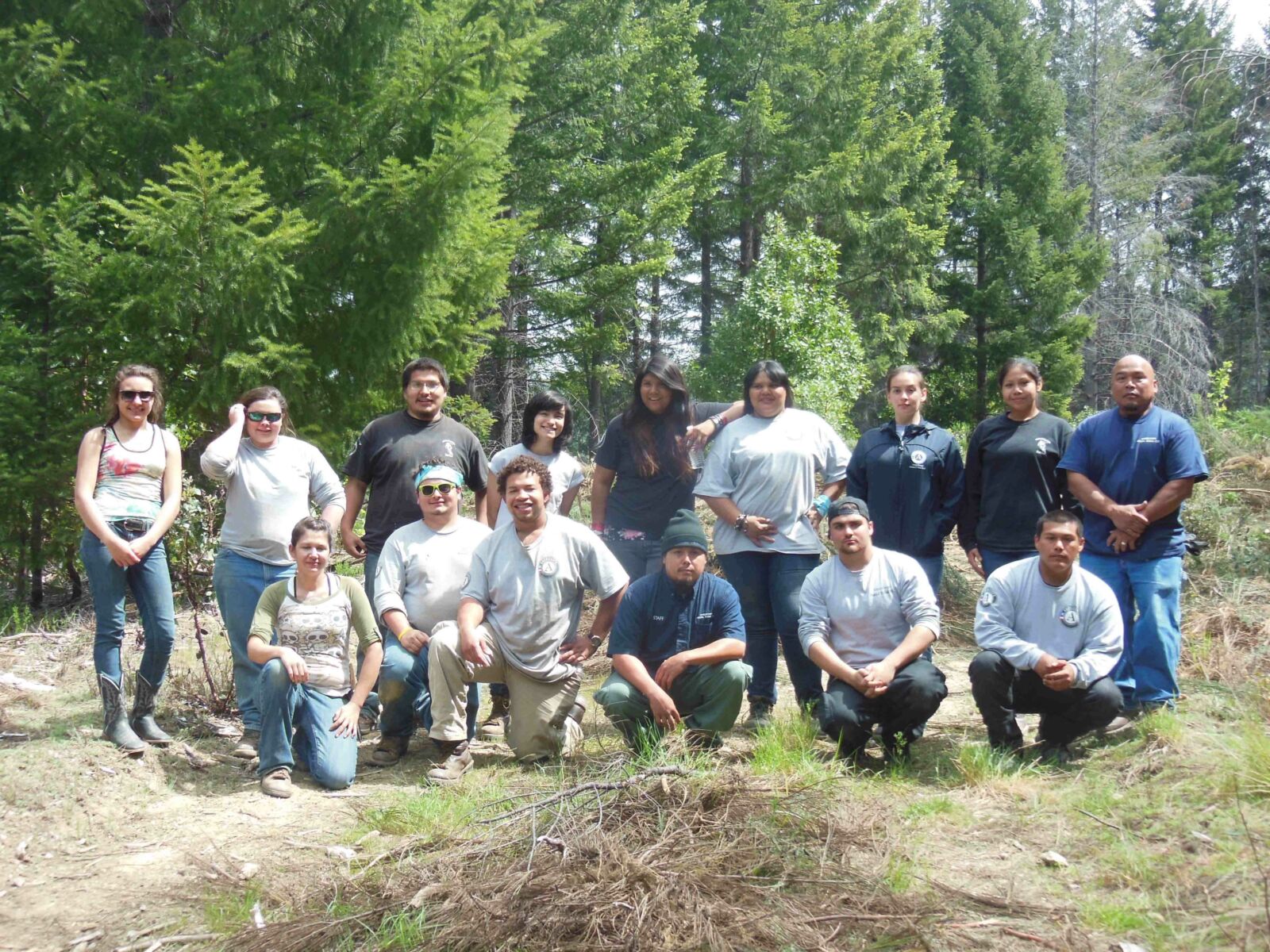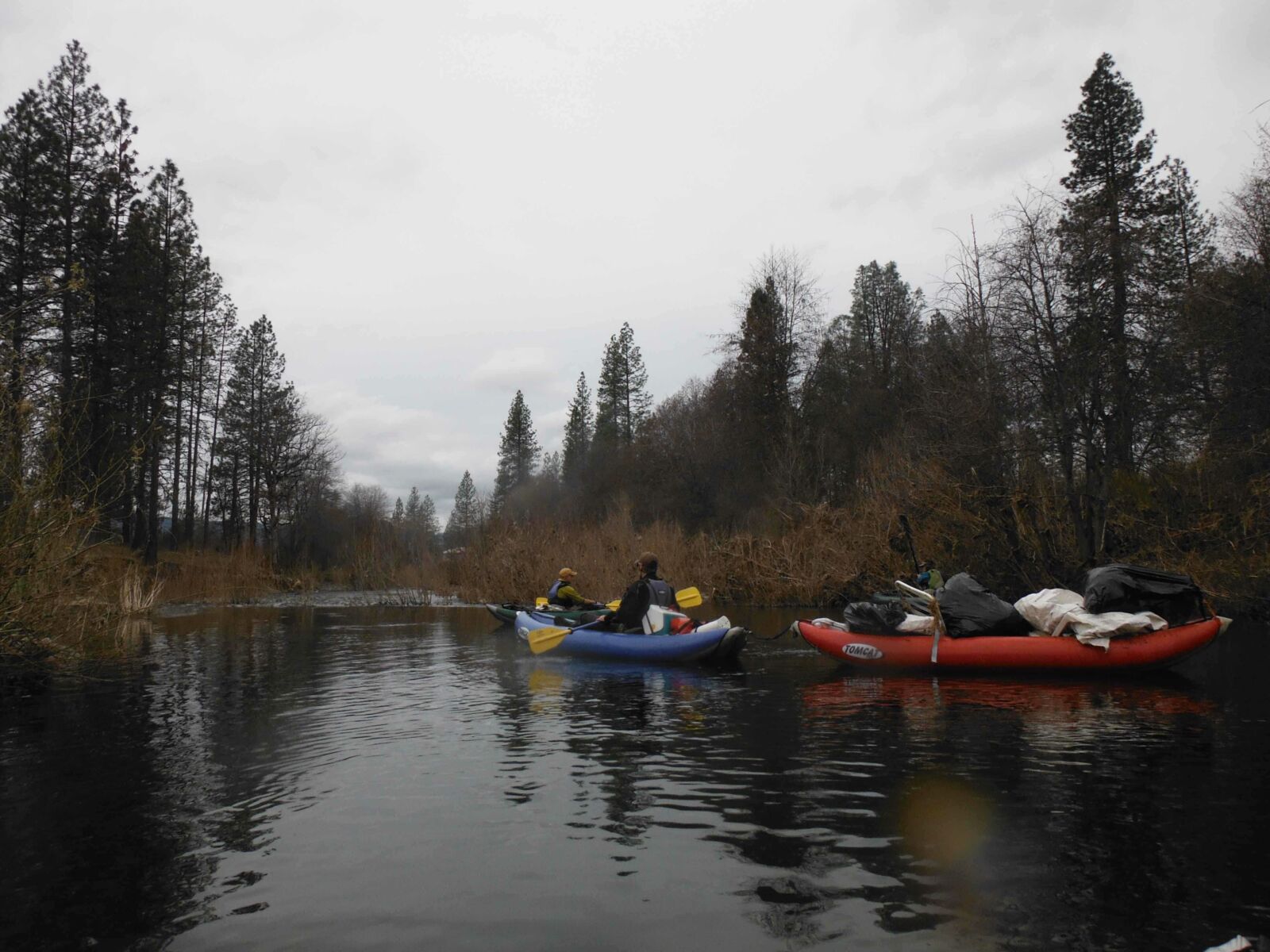Funded through the National Forest Foundation Matching Awards Program, the Watershed Center (WRTC) started The South Fork Basin Stewards Program (SFBS) in 2012 as a volunteer program designed to do a modest suite of activities -- weed pulls, trash clean-ups, and stream monitoring. Inside this simple set of activities was a strategy with bigger goals.
SFBS zeroes in on a unique but often overlooked area known as the South Fork Trinity River Watershed. This watershed is located in a world biodiversity hot spot, and is home to the vibrant South Fork Trinity River, the longest undammed river in California. Widespread human impacts have taken their toll on this exceptional ecosystem and its inhabitants. This rich stretch of forest now houses four imperiled species-- the Spotted Owl, the Pacific Fisher, and the Coho and Spring Chinook Salmon. The SFBS program seeks to protect and restore the unique South Fork Basin with the help of volunteers from the community.
Accomplished with very little funding, none of this would have been achieved without dedicated volunteers demonstrating the amazing benefits of investing in land and community.
This strategy has enabled the WRTC to focus volunteer efforts on the most pressing issues at hand, rather than waiting for grantors or regulatory agencies to catch up with the need and provide funding. After four years, SFBS projects have grown to include a variety of new restoration activities as well as the development of multiple programs that all accomplish work with volunteers.
SFBS weed pulls have developed into a thriving weed management program that supports Forest Service work and implements noxious weed management on essential areas such as neighboring private lands.

Volunteers at a noxious weed day.
Stream surveys invited the community out for fish counts, spawning surveys, stream assessments, and water monitoring efforts. These volunteer days help large-scale planning, and have supported a groundbreaking study at UC Davis that will be a key component of defining the Spring Chinook Salmon as an endangered species, helping to protect their survival.
Splash 4 Trash projects have cleaned miles of wild streams protecting water quality and wilderness aesthetic, and have expanded to include the addition of Trespass Marijuana Grow Reclamations, a serious and timely environmental threat to watershed health and habitat for the endangered pacific fisher.

Splash 4 Trash
From a small set of volunteer days, the South Fork Basin Stewards program has expanded and now supports youth crews, trail maintenance, recreation enhancement, riparian plantings, wetlands restoration, and much more. Accomplished with very little funding, none of this would have been achieved without dedicated volunteers demonstrating the amazing benefits of investing in land and community.

